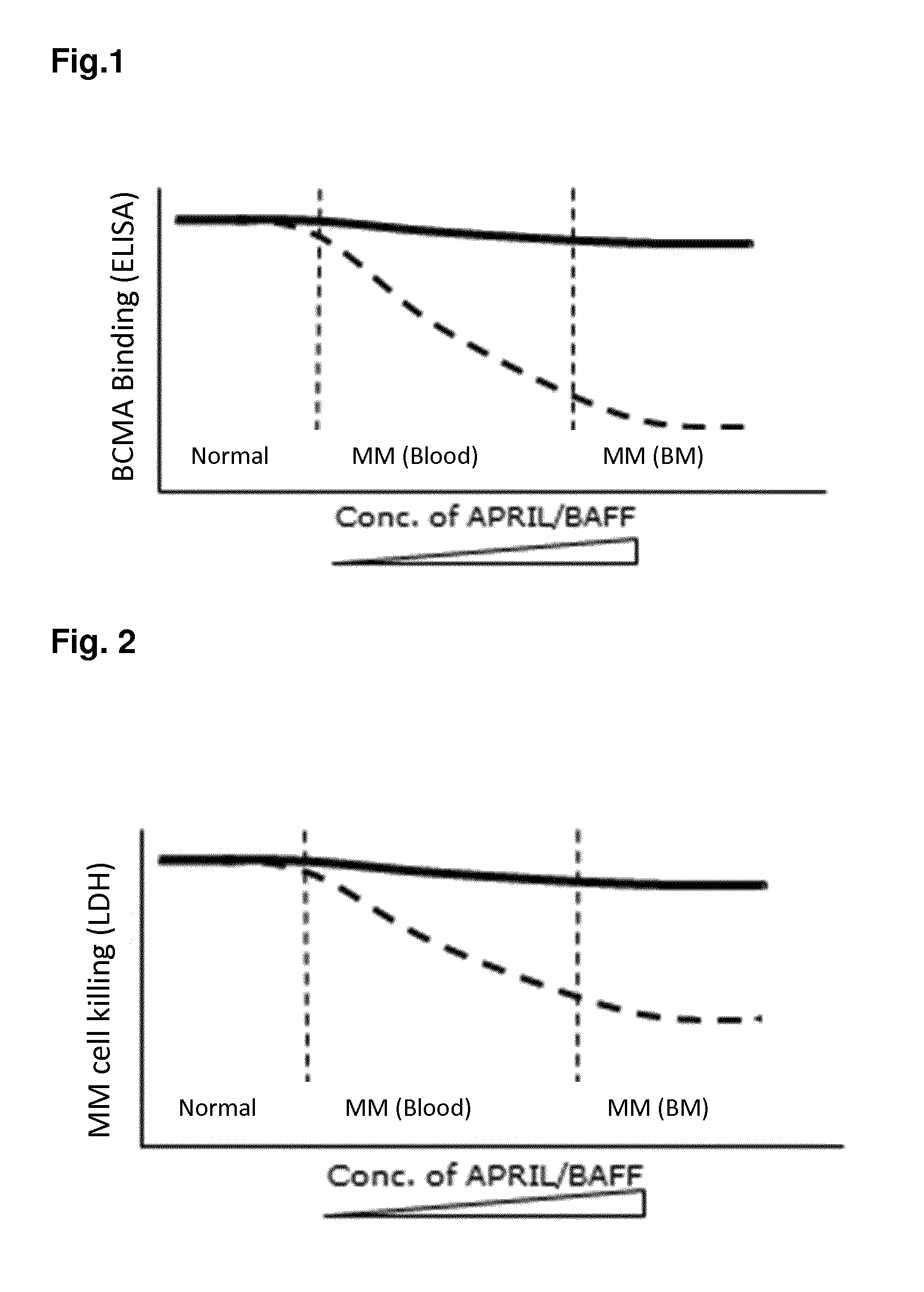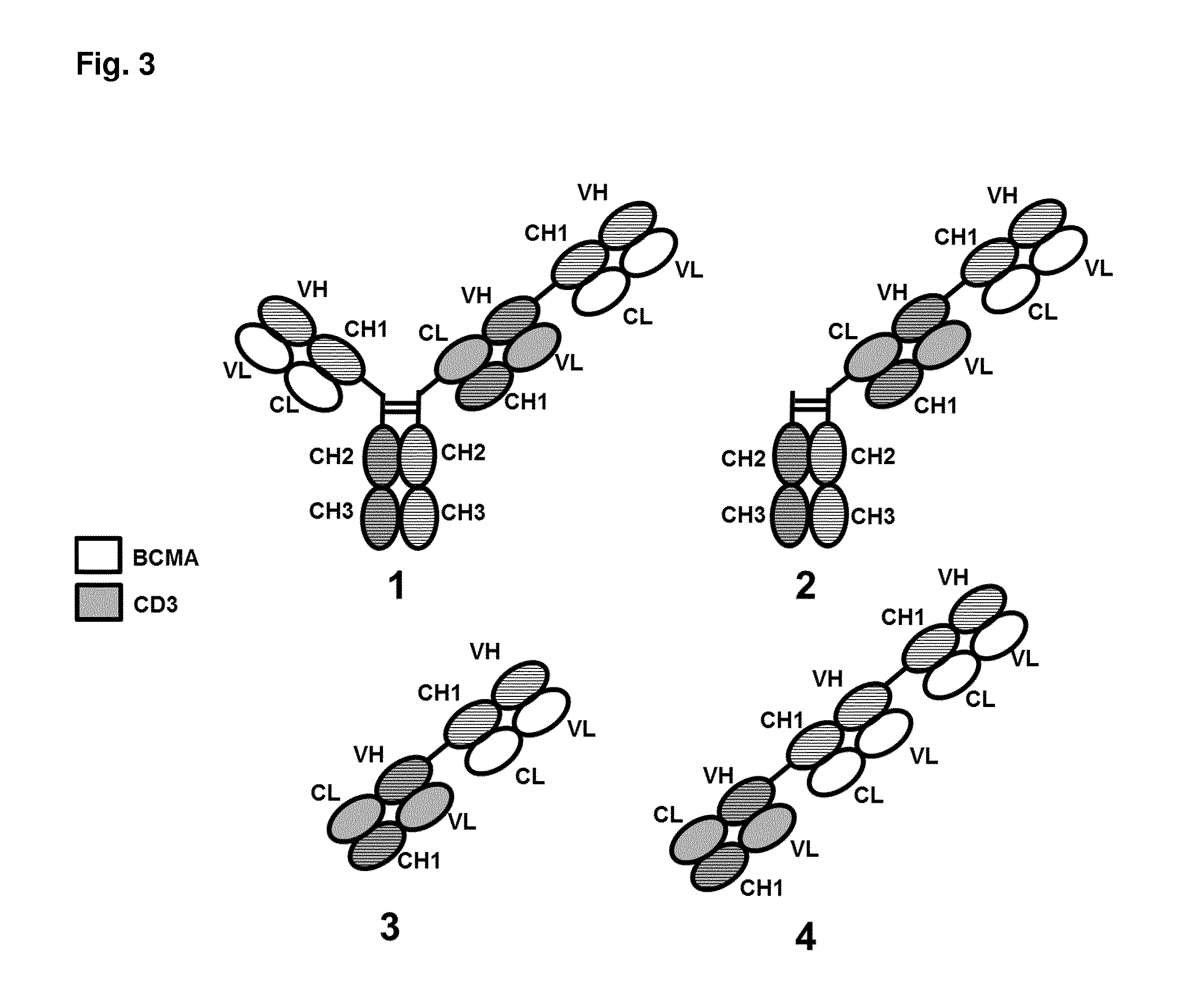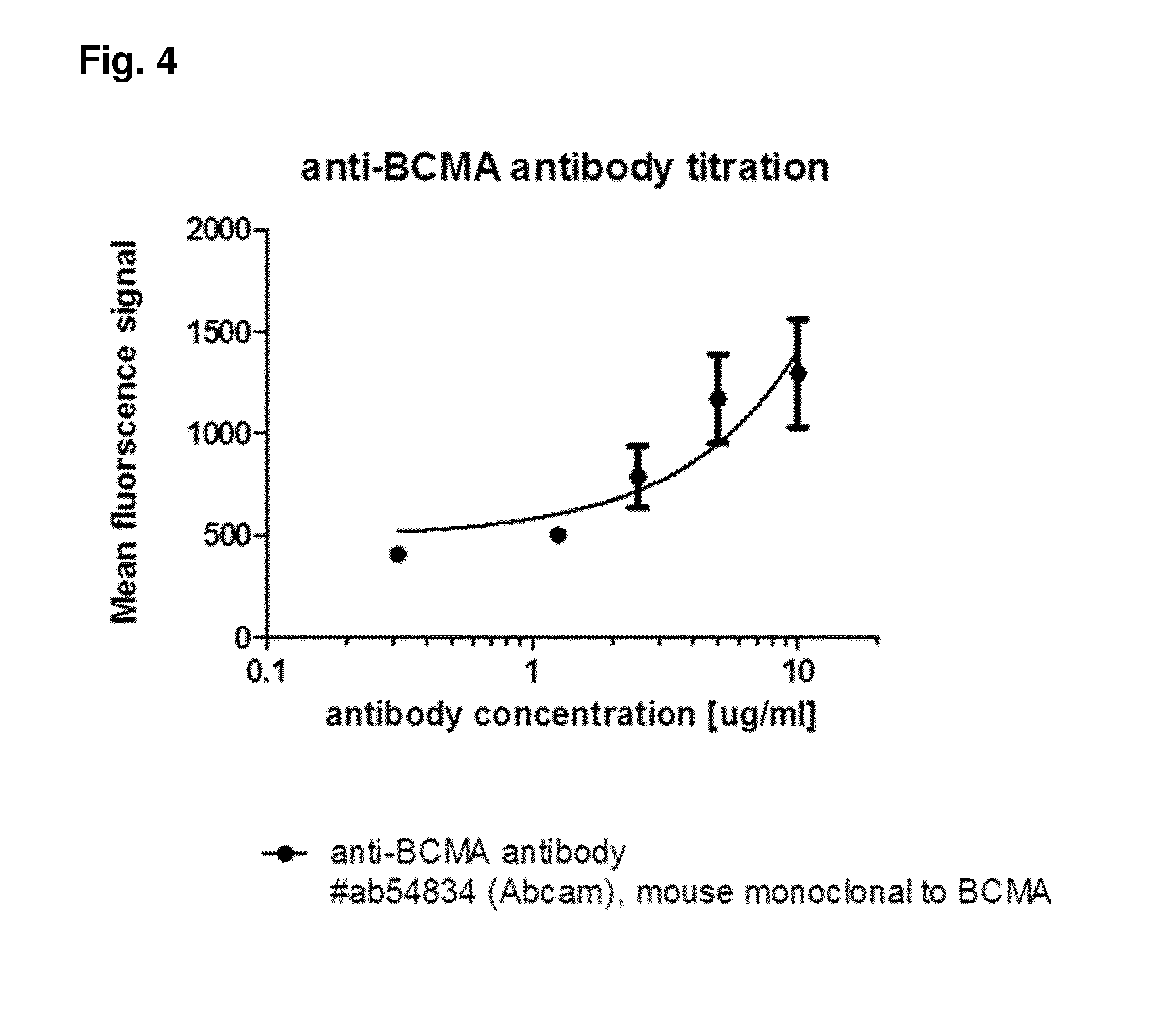Bispecific antibodies against cd3 and bcma
a technology of cd3 and bcma, which is applied in the field of bcma-specific antibodies, can solve the problems of inability to easily develop recombinant cd3 and bcma, and no data on the progression towards the clinic are currently available,
- Summary
- Abstract
- Description
- Claims
- Application Information
AI Technical Summary
Benefits of technology
Problems solved by technology
Method used
Image
Examples
example 1
Generation of Anti-BCMA Antibodies
Example 1A
Production of Antigens and Tool Reagents
example 1a1
Recombinant, Soluble, Human BCMA Extracellular Domain
[0158]a) Recombinant, soluble, human BCMA extracellular domain (“BCMA ECD”) is produced as described in Ryan, 2007 (Mol Cancer Ther; 6 (11): 3009-18). Briefly, the human BCMA extracellular domain (ECD; amino acids 5-51; NP—001183) is amplified with forward primer 5-AAGCTTGGATCCATGTTGCAGATGGCTGGGCAGTGCTCC-3 (SEQ ID NO:11) incorporating a BamH1 site (bold, underlined) and reverse primer 5-GAATTCGCGGCCGCTCATCCTTTCACTGAATTGGTCACACTTGCATTAC-3 (SEQ ID NO:12) incorporating a stop codon (italic) and NotI site (bold, underlined) using IMAGE clone 687194 (Invitrogen) as a PCR template. The PCR product is cloned into an expression vector comprising a glutathione S-transferase gene upstream of glutathione S-transferase (GST), transformed into an E. coli strain comprising T7 RNA polymerase gene under the control of the lacUV5 promoter and the induced protein is purified at 4° C. on an AKTAexplorer (GE Healthcare). The cell pellet is lysed in 1...
example 1a2
Recombinant, Truncated Murine APRIL
[0161]a) Recombinant, truncated murine APRIL is produced as described in Ryan, 2007 (Mol Cancer Ther; 6 (11): 3009-18). Briefly, murine APRIL (residues 106-241; NP—076006) is amplified from IMAGE clone 5290965 (Invitrogen) and cloned into a bacterial expression vector fused at the COOH terminus to Gene-specific forward primer 5-ACGTTAGATCTCCACTCAGTCCTGCATCTTGTTCCAGTTAAC-3 (SEQ ID NO:13) and reverse primer 5-AACGTTGCGGCCGCTAGTTTCACAAACCCCAGG-3 (SEQ ID NO:14) are used for amplification. The BglII and NotI sites (bold, underlined) in the forward and reverse primers, respectively, are used to clone the resulting PCR fragment a bacterial expression vector fused at the COOH terminus to thioredoxin.thioredoxin The construct is transformed into an Escherichia coli strain K-12 comprising a mutation in the thioredoxin reductase gene and cultured at 25° C. until A600 ˜0.6, induced with 1 mmol / L isopropyl-L-thio-β-D-galactopyranoside, and then cultured overnig...
PUM
| Property | Measurement | Unit |
|---|---|---|
| concentration | aaaaa | aaaaa |
| concentration | aaaaa | aaaaa |
| concentrations | aaaaa | aaaaa |
Abstract
Description
Claims
Application Information
 Login to View More
Login to View More - R&D
- Intellectual Property
- Life Sciences
- Materials
- Tech Scout
- Unparalleled Data Quality
- Higher Quality Content
- 60% Fewer Hallucinations
Browse by: Latest US Patents, China's latest patents, Technical Efficacy Thesaurus, Application Domain, Technology Topic, Popular Technical Reports.
© 2025 PatSnap. All rights reserved.Legal|Privacy policy|Modern Slavery Act Transparency Statement|Sitemap|About US| Contact US: help@patsnap.com



